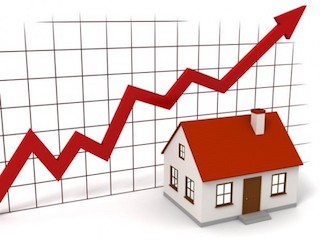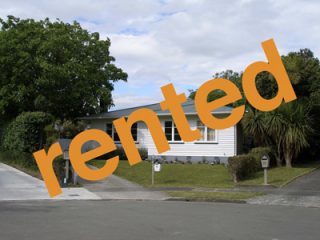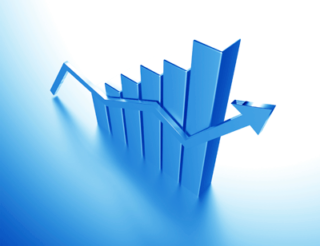Quote of the Week
“Those counting on a looming house price correction in the order of 15% to 20% in stand-alone properties are going to be disappointed.”
BetaShares chief economist David Bassanese
ANZ The Latest To Tip Price Boom
 The continued rise of housing markets driven by owner-occupiers has prompted ANZ to upgrade its outlook for residential property. It is now tipping strong price rises over the next year, confirming similarly positive forecasts by Westpac and Commonwealth Bank.
The continued rise of housing markets driven by owner-occupiers has prompted ANZ to upgrade its outlook for residential property. It is now tipping strong price rises over the next year, confirming similarly positive forecasts by Westpac and Commonwealth Bank.
The bank’s senior economists Felicity Emmett and Adelaide Timbrell are predicting a strong 2021 for Australian housing, building on the price uplift experienced by most capital cities and regional markets this year.
“We now expect house prices at the national level to rise over the balance of this year,” they say. “Next year, we expect price gains averaging 9% across the capital cities.”
ANZ admits that its earlier forecasts of a 10% drop in house prices was incorrect. It’s now predicting housing prices in Perth are likely to jump 12%, Brisbane 9.5% and Hobart 9.4%. Sydney prices are expected to rise 8.8% but Melbourne prices will lag a little, with 7.8%.
“The strength is largely being driven by owner-occupiers, with low interest rates appealing to buyers in secure employment,” they say.
Vacancies Ultra Low In Most Markets
 Vacancy rates remain below 1% in most major cities and regional centres across Australia, placing upward pressure on residential rentals.
Vacancy rates remain below 1% in most major cities and regional centres across Australia, placing upward pressure on residential rentals.
The latest data from SQM Research shows that vacancies were between 0.6% and 0.9% in October in five of the eight capital cities – Perth, Adelaide, Canberra, Hobart and Darwin. Brisbane was a little higher at 2%.
The exceptions to the low-vacancy trend are Melbourne and Sydney. Melbourne rose from 3.8% in September to 4.4% in October, reflecting the exodus of residents to regional areas to escape the city’s restrictions. Sydney vacancies rose from 3.5% to 3.6%.
In regional Australia, most significant cities and towns have vacancy rates well below 2%, with many under 1%.
SQM says house rents rose on average 2.1% in the capital cities in the past month, headed by a 4.2% monthly rise in Darwin, as well as significant increases in Perth, Adelaide and Canberra. In annual terms, house rents have increased 5.1%, led by Perth and Darwin which have both increased 9.2%.
Market Positivity Continues To Rise
 First-home buyers and real estate investors who were hoping to snap up a bargain from a Covid-19 fall in house prices are set to be disappointed.
First-home buyers and real estate investors who were hoping to snap up a bargain from a Covid-19 fall in house prices are set to be disappointed.
The latest figures from CoreLogic show prices in every capital city except Perth have climbed over the past 12 months despite the worst economic crisis since World War II.
And the major institutions like CommSec are forecasting significant price growth in the next 12 months. CommSec senior economist Ryan Felsman says “the housing market has held up pretty well” and is forecasting price growth in all capital cities in 2021 except Melbourne, which it expects to show little change.
AMP Capital chief economist Shane Oliver says there is “more positivity” around housing than earlier this year – when some forecast a 30% fall – but the outlook varied between cities. “Melbourne has seen a much bigger hit to its economy and will need longer to recover,” Oliver says.
Realestate.com.au chief economist Nerida Conisbee says worries about capital losses have been partially offset by “incredibly low” interest rates and easier finance.
Consumer Confidence Rises Further
 The weekly ANZ-Roy Morgan consumer confidence index has risen a further 3.4 %, reaching its highest level since February. The index has climbed for 11 weeks in a row.
The weekly ANZ-Roy Morgan consumer confidence index has risen a further 3.4 %, reaching its highest level since February. The index has climbed for 11 weeks in a row.
Positive news on a potential coronavirus vaccine has seen as a major reason for a further rise in the index. “The news about the successful vaccine trial no doubt played a major role,” ANZ economist David Plank says. “The strong result points to a potentially strong Christmas season ahead for retailers.”
Last week, pharmaceutical giant Pfizer’s said it was having ongoing successes developing a vaccine, which has a 90% effectiveness. On Monday, rival Moderna said trials of its vaccine showed a 95% efficacy.
Plank says an outbreak of coronavirus in South Australia is a reminder Australia is not clear of the virus just yet. “But the trend in confidence is very encouraging,” he says.
Reserve Bank governor Philip Lowe believes it is possible the Australian economy could perform better than the central bank is predicting if there is good news on the vaccine front. “If we do get further good news on the health front, we could have a rapid rebound,” he says.
RBA Governor Tips Rapid Rebound
 Reserve Bank governor Philip Lowe says the Australian economy is poised for a “rapid rebound” from the Covid recession – if the nation can keep the virus under control, given the pent-up savings and massive financial stimulus washing through the system.
Reserve Bank governor Philip Lowe says the Australian economy is poised for a “rapid rebound” from the Covid recession – if the nation can keep the virus under control, given the pent-up savings and massive financial stimulus washing through the system.
Lowe has urged Australian businesses to be brave and “seize the opportunities” of the digital transformation of the Australian economy in wake of the pandemic period.
Speaking at a CEDA event this week, Lowe delivered an upbeat assessment of the economy, saying Australia was “on the road to recovery”, with the potential to bounce back quickly should the health situation continue to improve.
Lowe warns there is still “considerable uncertainty about the outlook”. But he says there is “resilience” built into the system.
“Its been remarkable that in six months there’s two or three vaccines that are in advance stages of development,” Lowe says. “I’m encouraged by that. Its plausible that a vaccine be widely available and we start to get back to normal some time over the next couple of years”.
He also notes that despite the downturn, household balance sheets are in good shape and this is being aided by “a lot of stimulus in the system”.




